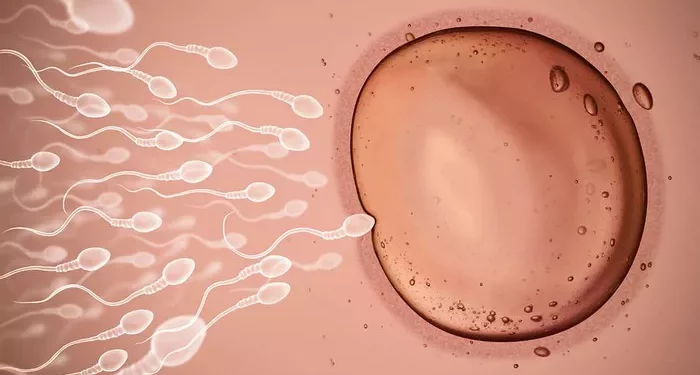Hypospermia is a condition characterized by a lower-than-normal volume of semen. Semen volume plays a crucial role in fertility, as it carries sperm and provides an environment conducive to sperm survival and mobility. Hypospermia can be a significant factor in male infertility, impacting a couple’s ability to conceive. This article aims to provide a comprehensive overview of the causes of hypospermia, addressing various factors that can contribute to this condition.
Defining Hypospermia
Hypospermia is defined as a decrease in the volume of semen during ejaculation. Normally, the semen volume ranges from 1.5 to 5.0 milliliters per ejaculate. Hypospermia is diagnosed when the semen volume falls below this range. It is important to distinguish between hypospermia and azoospermia (the absence of sperm) or oligospermia (low sperm concentration), as these conditions involve different aspects of male fertility.
Causes of Hypospermia
Hypospermia can result from a variety of factors, including anatomical, hormonal, and lifestyle-related causes. Understanding these factors is essential for diagnosing and treating the condition effectively.
Anatomical Factors
Ejaculatory Duct Obstruction
The ejaculatory ducts are responsible for transporting sperm from the seminal vesicles to the urethra. An obstruction in these ducts can impede the flow of semen, resulting in hypospermia. This obstruction can be congenital (present from birth) or acquired due to infections, trauma, or surgical procedures. Diagnostic imaging, such as ultrasound or MRI, can help identify obstructions and guide treatment options.
Prostate Gland Disorders
The prostate gland contributes to the production of seminal fluid. Conditions such as prostatitis (inflammation of the prostate) or benign prostatic hyperplasia (BPH) can affect prostate function and reduce semen volume. Prostatitis may be caused by bacterial infections or other inflammatory conditions. BPH is a non-cancerous enlargement of the prostate that can impact semen production.
Seminal Vesicle Dysfunction
The seminal vesicles produce a significant portion of the seminal fluid. Dysfunction or damage to these glands can lead to reduced semen volume. Causes of seminal vesicle dysfunction include infections, trauma, or surgical interventions. Evaluation of the seminal vesicles through imaging studies can help diagnose and manage these conditions.
Hormonal Factors
Hypogonadism
Hypogonadism refers to insufficient production of sex hormones, primarily testosterone. Testosterone is crucial for normal sperm production and semen volume. Primary hypogonadism occurs when the testes are unable to produce adequate testosterone, while secondary hypogonadism results from problems with the pituitary gland or hypothalamus. Hormonal evaluations, including serum testosterone levels, can help diagnose hypogonadism.
Thyroid Disorders
Thyroid hormones play a role in overall metabolism and reproductive function. Both hyperthyroidism (overactive thyroid) and hypothyroidism (underactive thyroid) can impact semen production. Abnormal thyroid hormone levels can lead to reduced semen volume and may require treatment to restore normal function.
Hormonal Imbalances
Imbalances in other hormones, such as luteinizing hormone (LH) and follicle-stimulating hormone (FSH), can also affect semen volume. These hormones are involved in regulating testicular function and sperm production. Testing for these hormones can provide insights into potential causes of hypospermia.
Lifestyle and Environmental Factors
Smoking and Alcohol Use
Smoking tobacco and excessive alcohol consumption can negatively affect semen production and overall reproductive health. Both substances can impact hormonal balance and impair the function of the reproductive organs. Reducing or eliminating these habits can improve semen volume and fertility.
Drug Use
Certain medications and recreational drugs can influence semen production. Medications such as antihypertensives, antidepressants, and certain antibiotics may have side effects that impact semen volume. Additionally, anabolic steroids and other illicit drugs can affect hormonal levels and reproductive function.
Environmental Toxins
Exposure to environmental toxins, such as heavy metals and industrial chemicals, can negatively affect reproductive health. These toxins can disrupt hormonal balance and impair the function of the reproductive organs. Reducing exposure to these substances and adopting a healthier lifestyle can help mitigate their effects.
Medical Conditions
Diabetes Mellitus
Diabetes can affect various aspects of reproductive health, including semen production. Poorly controlled diabetes can lead to nerve damage and vascular issues, impacting the function of the reproductive organs. Effective management of diabetes through lifestyle changes and medication can help improve semen volume.
Genetic Disorders
Certain genetic conditions can impact semen production and reproductive health. For example, Klinefelter syndrome is a genetic disorder characterized by an extra X chromosome, which can lead to reduced testosterone levels and lower semen volume. Genetic testing can help diagnose such conditions and guide treatment options.
Autoimmune Disorders
Autoimmune disorders occur when the immune system mistakenly attacks the body’s own tissues. In some cases, autoimmune responses can target the reproductive organs, leading to reduced semen production. Treatment of autoimmune disorders may involve immunosuppressive therapies and addressing underlying conditions.
Psychological Factors
Stress and Anxiety
Stress and anxiety can have a profound impact on overall health and reproductive function. Chronic stress can lead to hormonal imbalances and reduced semen production. Stress management techniques, such as counseling, relaxation exercises, and lifestyle changes, can help improve reproductive health.
Depression
Depression can affect various aspects of health, including reproductive function. It may lead to changes in hormonal levels and reduced semen production. Treating depression through therapy, medication, and lifestyle modifications can help improve semen volume.
See Also: Do You Know How Azoospermia Occurs?
Diagnostic Approaches
To diagnose hypospermia, a comprehensive evaluation is necessary. This typically includes a detailed medical history, physical examination, and laboratory tests. Semen analysis is a key component of the diagnostic process and involves assessing semen volume, sperm concentration, motility, and morphology.
Additional diagnostic tests may include hormonal evaluations, imaging studies, and genetic testing, depending on the suspected underlying causes. Collaboration between specialists, such as urologists, endocrinologists, and reproductive endocrinologists, may be required to develop a tailored treatment plan.
Treatment and Management
The treatment of hypospermia depends on the underlying cause and may involve a combination of medical, lifestyle, and surgical interventions. Addressing the root cause of hypospermia is essential for effective management and improving fertility outcomes.
Medical Treatments
Medical treatments may include hormone replacement therapy for hypogonadism, antibiotics for infections, or medications to manage underlying health conditions. Hormonal imbalances may be corrected with targeted therapies, while conditions such as diabetes and thyroid disorders require effective management.
Lifestyle Modifications
Adopting a healthy lifestyle can have a positive impact on semen production. This includes quitting smoking, reducing alcohol consumption, and avoiding recreational drugs. A balanced diet, regular exercise, and stress management techniques can also contribute to improved reproductive health.
Surgical Interventions
In some cases, surgical interventions may be necessary to address anatomical issues or obstructions. Procedures such as corrective surgery for ejaculatory duct obstruction or prostate surgery may be recommended based on individual needs. Surgical options should be discussed with a qualified healthcare provider to determine the most appropriate approach.
Assisted Reproductive Technologies
For couples experiencing infertility due to hypospermia, assisted reproductive technologies (ART) may be considered. Techniques such as intrauterine insemination (IUI) or in vitro fertilization (IVF) can help increase the chances of conception. ART can be particularly beneficial when other treatments have not achieved desired results.
Conclusion
Hypospermia is a condition that can significantly impact male fertility and overall reproductive health. Understanding the various causes, including anatomical, hormonal, lifestyle, and medical factors, is essential for effective diagnosis and treatment. By addressing the underlying causes and making appropriate lifestyle and medical interventions, individuals and couples can improve their chances of conception and enhance their overall reproductive well-being.
If you suspect you have hypospermia or are experiencing difficulties with fertility, it is important to seek professional medical advice. A thorough evaluation by a qualified healthcare provider can help identify the root causes and guide appropriate treatment options to support your reproductive health.
Related Links:



























